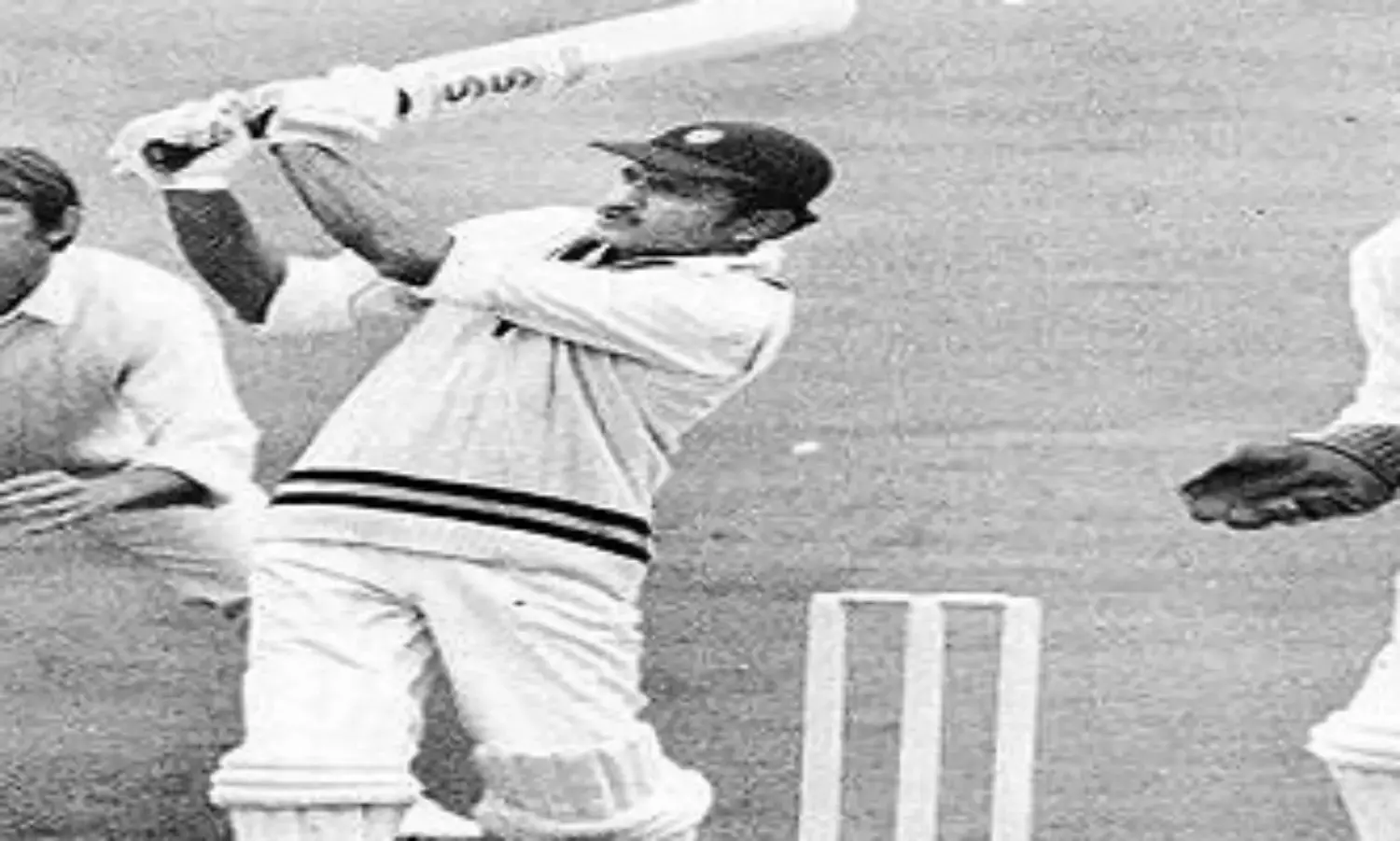Ajit Laxman Wadekar: A Memory
A successful captain

I have so many memories of Ajit Laxman Wadekar that I don’t know where to begin. Having seen him as a batsmen and a captain and then inter acting with him on numerous occasions in my capacity as a sports journalist I can straightaway say that he is someone I shall always have fond memories of.both as a cricketer and as a person. .
So from where do the memories start? I can start with the fact that he was an elegant left handed batsman who lent style and substance to the Indian team in the sixties and seventies at the pivotal No 3 slot.
Or I can start with his faultless slip catching that saw him pouch a record 46 catches from just 37 Test matches.
Of course he was a prolific run getter at the domestic level good enough to amass over 15,000 runs with 36 hundreds and a highest score of 323. And in later years he served Indian cricket as coach of the Indian team besides also having a stint as chairman of the national selection committee. But despite such credentials the overall image of Wadekar would still be as one of the most successful Indian captains who was at the helm when India won breakthrough contests in the West Indies and England in the memorable ''India Rubber Year’’ of 1971.
Wadekar’s appointment – courtesy the casting vote of the selection committee chairman Vijay Merchant – saw the end of the long reign of Mansur Ali Khan Pataudi and the start of a historic period which had India winning three successive Test series all under the captaincy of Wadekar. Such notable successes were unknown in Indian cricket and so Wadekar by the early 70s was the veritable monarch of Indian cricket.
Yes, perhaps it was Pataudi who did all the planning during his tenure in the 60s to build a team which revolved around a quartet of superb spin bowlers since he was aware of the paucity of fast bowlers in India. Thanks to the example set by the captain there was also vast improvement in the fielding and greater solidity in the batting.
But Wadekar should be given credit for harnessing all these qualities with a quiet, undemonstrative yet efficient brand of leadership. In his own way he got the best out of the team even if he was not a brilliant tactician. But he knew how to goad his players to greater deeds and with the return of Dilip Sardesai – on Wadekar’s insistence it must be said – who led the way with three hundreds in the West Indies and the emergence of Sunil Gavaskar as a prodigious run getter along with the spin quartet who by then were at their peak things fell into place first in the Caribbean and then in England. The photo of Wadekar standing on the balcony waving to the cheering crowds at the Oval on August 24 was the most joyous picture of the year. It was certainly Indian cricket’s finest hour.
A third successive victory over England at home in 1972-73 boosted Wadekar’s stock even further but then disaster was round the corner. Sport, like life, can be a great leveller and if everything went right for Wadekar in 1971 nothing went right for him in England in 1974.
All three Tests were lost, two by humiliating margins during a trip that has come to be known since then as the ''Summer of 42’’ – the number standing for the total that India were all out for in the second Test at Lord’s still the lowest ever total in Indian Test history. A scapegoat had to be found for the debacle and who else but the skipper had to pay the supreme price. He announced his retirement even though at 33 he still had much to offer as a batsman.
Wadekar suddenly became the forgotten man of Indian cricket only to emerge almost 20 years later as the manager of the Indian team. He enjoyed a successful tenure for almost four years as the Indian team went from one victory to another playing on the dust bowls at home besides winning a Test series in Sri Lanka. An excellent public relations man Wadekar frequently came to the rescue of his captain Md Azharuddin whose handling of the media left much to be desired.
Perhaps the lasting image of Wadekar would be that of a gentleman cricketer. Soft spoken, affable and always approachable he would put his views across in his inimitable clipped English accent with never an unkind word for anyone. He had the happy knack of saying the right words at the right time and that is one more thing today’s cricketers could learn from him. . . .



